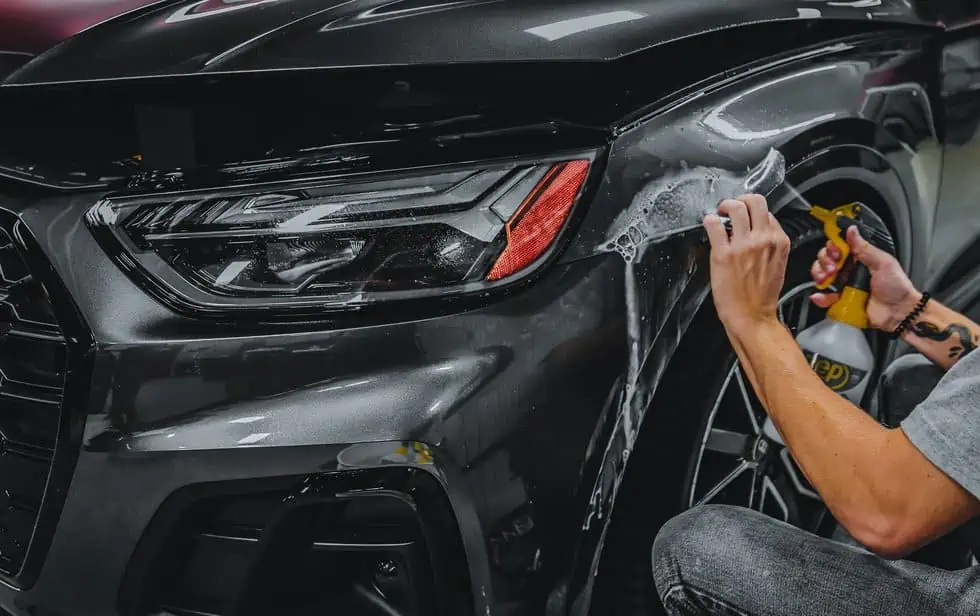What to Expect During Your First Week as an Auto Reconditioning Technician
Beginning your hands-on training in auto reconditioning is an exciting turning point. The first week is where your understanding shifts from ideas to real skill. You move from being someone who is interested in reconditioning to someone who is doing reconditioning. It is the moment where you start to feel your confidence grow, and you begin seeing results you created with your own hands. The first week is not about being perfect. It is about learning how to feel the work, understand your tools, and recognize progress. Every movement you make, every mistake you correct, and every adjustment you learn shapes your foundation. The first week is the week where your hands begin to learn before your mind does.
In most training environments, your first week is focused on understanding the fundamentals of how surfaces react when they are cleaned, corrected, or reshaped. You will spend time learning how to see the vehicle differently. Your eye begins to notice light reflection, surface distortion, paint texture, dent structure, fabric tension, and plastic grain. This is a new kind of awareness — not just looking at a car, but seeing it. And that shift is one of the most important parts of learning the trade.
Your First Days: Learning How to See and Feel the Work
When you start training, your instructor will show you the basic tools and techniques. You will watch how they approach the vehicle, how they position themselves, and how they apply pressure or polish or heat or correction. Then you will try it. At first, the movements may feel unfamiliar. The results may be uneven. This is normal. Skill in auto reconditioning is built through repetition, not instant mastery. You are training your coordination, your touch, and your perception. The beauty of hands-on work is that progress is visible. You will see small wins in real time.
During the first few days, most new technicians realize something very encouraging: you do not need to be mechanically minded to succeed. You need patience, a willingness to practice, and the desire to improve. The work is methodical. The improvement is steady. You learn by doing. And every day, the work feels more natural.
“Your hands will learn the trade before your mind fully understands it. Trust the process.”
Midweek: Confidence Begins to Form
By the middle of your first week, something shifts. You start to recognize patterns. You begin to understand how much pressure is too much, how to read light reflections, how to identify textures, and how to control your pace. You may still make mistakes — and those mistakes are valuable. Each mistake teaches you how to correct, adapt, and refine. You will likely complete your first successful repairs or restorations during this time. The moment you step back and see a dent disappear, a cloudy headlight become clear, or a surface shine return, you feel it. That feeling is motivation. It builds belief.
This is also the stage where you start to see your future more clearly. You will understand how these skills turn into income. You will see how one service can lead to another, how one repair can lead to a customer relationship, and how consistency leads to business growth. Your confidence does not come from being perfect — it comes from knowing you are improving every time you try.
End of Week One: The Beginning of Real Skill
By the end of the first week, you will have performed multiple repairs or restorations, each one contributing to your control and understanding. You will start to move with more intention and less hesitation. You will also begin to notice how your instructor’s guidance makes more sense each day. Information that felt overwhelming on day one now connects naturally to what your hands have experienced. This is how skill-based trades develop — clarity follows practice.
You may also start to feel excited about offering your first services to real customers. It is common for new technicians to perform paid work shortly after or even during training. The first week is not the end of learning — it is the start of momentum.
Key Takeaways
The first week is where you shift from watching to doing.
Progress is visible and builds through repetition and patience.
Confidence grows as your hands learn the technique.
You do not need perfection — you need consistency and willingness to practice.
The first week is the beginning of your skill, not the limit of it.
FAQs
Q: What if I feel slow or unsure at first?
That is normal. Every skilled technician began exactly where you are now.
Q: How quickly will I see real results?
Most students see noticeable improvement within the first few days.
Q: Can I start earning money after week one?
Yes. Many technicians begin taking small jobs shortly after training.
Conclusion
Your first week is the foundation of your future in auto reconditioning. It is where confidence is formed, mistakes turn into progress, and your identity as a hands-on craftsperson begins to take shape. If you are ready to start training, build your skill, and begin building your next chapter with your own hands, call 800-304-3464 to explore upcoming training dates and find the best path forward for your goals. You don’t have to rush — you simply have to begin.



